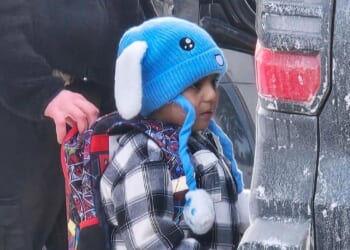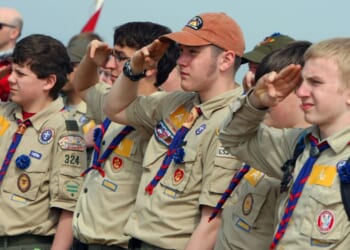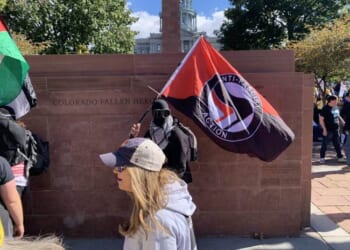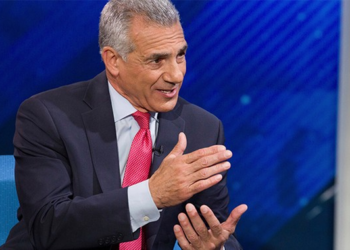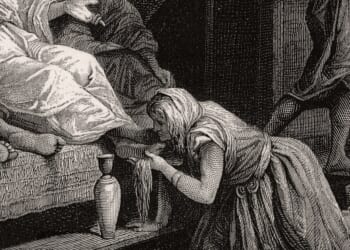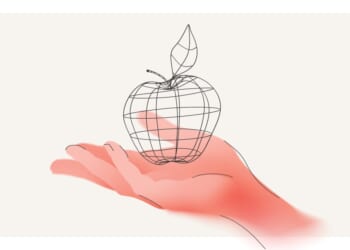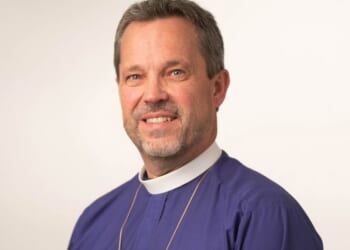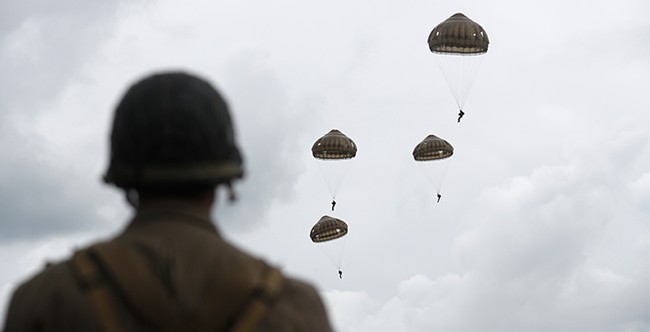
Across the state of Wisconsin, Thanksgiving arrives with a rhythm set long before anybody lifts a carving knife or tells someone to pass the rolls.
It begins in the woods, not the kitchen; deer season brings a kind of dawn that sticks with people for life. You step outside when the cold still carries the sting of night; you breathe deep, hear the soft crunch under your boots, and accept a silence that feels honest. Families across the state let the mornings unfold that way, and by the time they return home, the table has become a reward warming the bones.
Hunting mornings carry their own sense of hope: You wait without complaint because tradition told you that patience carries the day. You stay in your stand longer than you planned, thinking about the smell of dinner drifting through the house miles away.
Coming back empty-handed means you step through the door into the heat, sound, and comfort of knowing someone prepared something for you. Nearly every Wisconsin family knows that feeling because the holiday never depended on what happened in the woods: it depended on the return.
It’s a return that carries a more resounding echo when you place it beside stories from a very different November long ago, when the woods and the table met stories from the war that changed the world. Gratitude stretches through time when you let those stories breathe.
Belgian Doorsteps and the Kindness That Outlived Fear
In late 1944, American troops moved through Belgium while pushing against German lines, during a season of cold mud and fog, exhaustion, and the quiet weight of uncertainty.
Villagers who had endured years of occupation stepped out of their homes and invited American soldiers into rooms warmed by small stoves. They carried bowls of potatoes, onions, and thin slices of meat, which they guarded from German patrols. Those people had very little, yet they shared more than anyone expected. Soldiers who had grown to meals from metal tins tasted something familiar again; the food was simple, but the kindness wasn’t.
A tired man standing in a Belgian doorway felt something that cut through the fear that followed him from village to village. Those families wanted to give Americans one decent memory during the darkest months of the war, succeeding more than they ever knew; many veterans said that those meals stayed in their minds long after the sound of fading gunfire.
Belgian families created small pockets of grace in a world that had nearly forgotten kindness. Piecing that memory beside a Wisconsin dining room in late November, you notice the shared truth.
People waiting in the cold appreciate warmth in a way that never leaves them.
A Foxhole Near Jack and a Meal Taken, Lost, and Found Again
Most families have a single person who has become a legend. In my family, it was my dad’s uncle, Jack, who carried that truth home after the war. He fought across Europe during the final push into Germany, where cold ground, wet gear, and long marches turned into a test of patience.
Jack was the radioman for his squad. I wish I could tell you I knew for a fact, but since he was parachuting over France on D-Day, I’m assuming he was either part of the 82nd or 101st Airborne. Everybody who could provide specifics has already moved on.
Because of his job, he was in line to jump first: The light turned green, so he jumped. Unfortunately for him, the pilot changed it back to red for reasons unknown, meaning Jack jumped alone. What was worse was that his radio equipment tore away from him, leaving him alone with nothing more than his compass.
Jack told my dad that what he learned as an outdoorsman growing up saved his life. Over two days, he lay low in the brush, hiding from the Krauts, only moving at night, swimming across a couple of small rivers and ponds, and eventually finding his unit.
A short time after the invasion, his squad found a rare chance to sit down and eat while moving near a contested area. They stopped, opened their packs, and smelled a meal that felt like a promise that the day might finally give something back.
Unfortunately, they didn’t get that ‘more in a moment.’
German soldiers surrounded them before anyone could live a fork. There wasn’t a dramatic movie scene, a heroic last stand; just raised hands, rifles pointed at tired, hungry men, with the sinking realization that the meal they had waited for since dawn had been taken from them. The Germans were hungrier, so they ate the food while Jack and the others sat on the ground, unable to do anything but watch steam rise into the cold air.
My dad told me that whenever Jack shared that story, he always paused. Losing the meal carried its own sting, but watching someone else eat it drove the memory deeper.
What he didn’t know was that another American unit was moving toward them from the south, soon surrounding the Germans, turning the situation on its head, and freeing Jack’s squad after hours that felt longer than any of them would like to admit.
The afternoon stretched out while the food returned, and the men finally ate. This didn’t happen on Thanksgiving Day, but it was close enough for Jack to attach his tale to the holiday, and enough for him to remember the irony every year that followed.
He never forgot the taste of that meal; it tasted like survival, relief, and a world that still wanted him to keep going.
Wisconsin Carries the Same Spirit Forward
When hunters walk back into their homes on Thanksgiving afternoon, they carry the echo of men who learned the meaning of gratitude in harder places. A hunter who steps into warmth after hours in the cold knows how relief feels. A soldier in Belgium who opened a villager’s door in 1944 learned the same lesson. A man in a foxhole near Jack learned it when the long morning finally ended.
Three different places; three different Novembers, yet one truth.
Gratitude grows out of the cold, taking root when a man’s stomach reminds him that he needs something more than food, and growing when people open doors, sharing what little they have, or fight hard enough to give a tired man a second chance at life.
It’s a cycle that Wisconsin families understand, having lived through harsh, dark winters, long drives, too-early mornings, and the same steady belief that warmth waits at home. A belief carries the same weight as the Belgian villagers carried when they opened their kitchens, and the same weight that Jack felt when he finally had a chance to eat long after he thought the day turned against him.
Gratitude survives because people choose to carry it.
Final Thoughts
Thanksgiving never depends on a perfect bird or a flawless pie; it depends on people who return from the cold and sit down at the same table, grateful for warmth, safety, and the quiet company of those who stayed behind to prepare something worth coming home to.
Hunters model the latest blaze-orange hunting gear as they step through Wisconsin doorways, with that feeling every year. American soldiers once stepped across Belgian thresholds with that same sense of relief. Jack stepped in and out of danger before an afternoon meal that meant more than anyone around him could measure.
A warm table steadies people, men in wartime and families in Wisconsin. It steadies anyone who remembers that gratitude grows when the cold has done its work and the long, chilly morning finally ends.
Why PJ Media Matters
If you want deeper dives into stories like this one, and if you value independent writing that respects tradition, courage, history, and the America that shaped men like Jack, you can join the PJ Media VIP community. Exclusive columns, research, and commentary live there first, and your support helps writers tell stories that corporate media ignores.
Strong voices matter in a press culture that mixes heat with noise. PJ Media keeps reporting grounded in clarity, evidence, and backbone. Support that work while taking advantage of our Black Friday sale.





